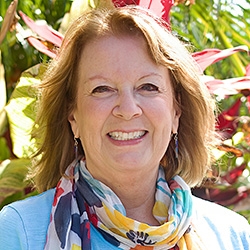

NVC Resources on Connection
-
NVC practice is based on several key assumptions and intentions. When we live based on these assumptions and intentions, self-connection and connection with others become increasingly possible and easy, helping us contribute to a world where everyone’s needs are attended to peacefully.
-
Ever have a hard time saying "no" to someone, or feel obligated to say yes? Here's an exercise that can help you notice where you are placing yourself as someone who "has to" say yes; the needs in the other person making the request; what you want to say "yes" to (regarding your needs and theirs) by saying "no"; what prevents you from saying "yes"; plus your request and how you might express it.
-
To help you stay connected to yourself and the other person when in challenging discussions about COVID-19 vaccines or other hot issues, without labeling others as reactive or otherwise, you can begin by tracking signs of your own reactivity to bring mindfulness onboard, then shifting your attention to universal needs; and asking to connect about it later. Read on for more.
-
Empathy creates space for healing and clarity, transforming how care and understanding unfold.
-
Learn when to use the two types of requests in the practice of Nonviolent Communication: Action Requests and Connection Requests. Both are important when working through conflict or difficult situations and for building connection.
-
Fear in dealing with a neighbor's 'wastebasket talk.' Only leaving or interrupting stops the flow.
-
Ask the Trainer: Share a list of request types, examples, and a strategy for formulating them.
-
Trainer Tip: Whether we listen to our own or the other person’s needs first, connecting to needs can help us release judgments of others, see their humanness, help us to begin to hear them and ultimately connect to them. Be aware today of times when you are judging someone. Then be aware of your own needs to improve your connection to them.
-
John introduces his Self-Connection Exercise as a mindful way of coming to awareness via OFNR. Breath: immediately observable, a reminder to observe. Body: feeling the body, awareness of sensations. Needs: an experience of wholeness that expands awareness of the totality of experience. Listen.
-
Our craving for love, acceptance, and approval can lead us to show only parts of ourselves and hide others. This lack of authenticity breeds disconnection and mistrust, leading to those very needs not being met. Once I accept myself, being authentic is easier. And then people in my life can love me for who I really am, warts and all.

Quick Links
Subscription Preferences
Stay In Touch!
Looking for ways to keep up with NVC Academy news, get special offers, free resources, or words of inspiration? Here are five ways to stay engaged:










